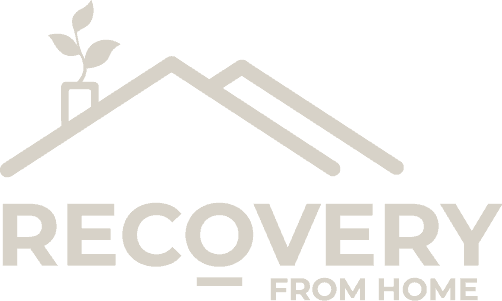Addiction is a complex and multifaceted issue that affects millions of individuals and families worldwide. Despite its prevalence, addiction remains shrouded in misconceptions and societal stigma, often hindering those affected from seeking help and support. This article aims to shed light on the various aspects of addiction stigma, exploring its roots, impacts, and ways to challenge these harmful perceptions.
By examining the intricate relationship between addiction and societal attitudes, we can begin to unravel the complexities surrounding this issue. From debunking common myths to understanding the far-reaching consequences of stigma, this exploration seeks to foster a more compassionate and informed perspective on addiction and the barriers due to addiction stigma.
As we delve into this topic, it’s crucial to approach it with an open mind and a willingness to challenge our own preconceptions. By doing so, we can contribute to creating a more supportive environment for those struggling with addiction and pave the way for more effective treatment and recovery strategies.
Whether you’re personally affected by addiction, know someone who is, or simply wish to gain a deeper understanding of this pressing social issue, this article aims to provide valuable insights and promote a more nuanced view of addiction and its impact on individuals and society as a whole.
Understanding Addiction Stigma
Addiction stigma refers to the negative attitudes, beliefs, and stereotypes associated with substance abuse disorders and those affected by them. This pervasive social phenomenon has far-reaching consequences, affecting not only individuals struggling with addiction but also their families, communities, and society at large.
The Nature of Stigma in Addiction
At its core, addiction stigma stems from a fundamental misunderstanding of the nature of substance abuse disorders. Many people view addiction as a moral failing or a lack of willpower, rather than recognizing it as a complex health condition with biological, psychological, and social components. This misconception leads to judgment, discrimination, and a lack of empathy towards those grappling with addiction.
The stigma surrounding addiction manifests in various forms, including:
- Social rejection and isolation
- Discrimination in employment and housing, including workplace discrimination addiction sufferers face
- Negative portrayals in media and popular culture
- Barriers to accessing healthcare and support services, exacerbated by addiction stigma in healthcare
- Internalized shame and self-stigma among those affected
These manifestations of stigma create a cycle of shame and secrecy, often preventing individuals from seeking the help they need and perpetuating the cycle of addiction. Breaking the addiction stigma requires efforts from individuals, communities, and institutions alike.
Historical Context of Addiction Stigma
To fully grasp the current state of addiction stigma, it’s essential to consider its historical roots. The perception of substance abuse and addiction has evolved significantly over time, shaped by cultural, political, and scientific factors.
In the early 20th century, the temperance movement and subsequent prohibition era in the United States framed alcohol abuse as a moral and social evil. This perspective laid the groundwork for viewing substance use through a moralistic lens, rather than a health-oriented one.
The “War on Drugs” campaign of the 1970s and 1980s further entrenched negative attitudes towards substance abuse, emphasizing criminalization over treatment and support. This approach disproportionately affected marginalized communities and reinforced stereotypes about who is affected by addiction.
While scientific understanding of addiction has advanced significantly in recent decades, societal attitudes have been slow to catch up. The lingering effects of these historical perspectives continue to influence public perception and policy approaches to addiction. Educating about addiction stigma is critical to reversing these deep-seated misconceptions.
The Role of Language in Perpetuating Stigma
Language plays a crucial role in shaping perceptions and attitudes towards addiction. The words we use to describe substance abuse disorders and those affected by them can either perpetuate stigma or promote understanding and compassion.
Stigmatizing language often includes terms like:
- “Addict” or “junkie”
- “Drug abuse” or “substance abuse”
- “Clean” or “dirty” (referring to drug test results)
These terms reduce individuals to their condition, emphasizing moral judgment over the complex nature of addiction. In contrast, person-first language and neutral medical terminology can help shift perceptions:
- “Person with a substance abuse disorder”
- “Substance abuse” or “misuse”
- “Positive” or “negative” drug test results
By consciously choosing language that respects the dignity of individuals and accurately reflects the nature of addiction, we can begin to challenge stigmatizing attitudes and promote a more compassionate understanding of substance abuse disorders.
The Impact of Stigma on Individuals and Society
The stigma surrounding addiction extends far beyond mere social disapproval, profoundly affecting individuals, families, and entire communities. Its consequences ripple through various aspects of life, creating barriers to recovery and perpetuating cycles of substance abuse and social isolation.
Personal Consequences of Addiction Stigma
For individuals struggling with substance abuse disorders, the weight of societal stigma can be overwhelming. The personal consequences of this stigma are far-reaching and can significantly impact an individual’s journey towards recovery:
- Internalized Shame: Many people with addiction internalize societal stigma, leading to feelings of worthlessness and self-loathing. This addiction shame and stigma can exacerbate substance abuse as a coping mechanism.
- Reluctance to Seek Help: Fear of judgment and discrimination often prevents individuals from seeking necessary treatment and support.
- Social Isolation: Stigma can lead to the breakdown of personal relationships and social networks, removing crucial support systems.
- Employment and Housing Challenges: Discrimination in employment and housing markets can hinder individuals in recovery from rebuilding their lives.
- Mental Health Complications: The stress of facing constant stigma can exacerbate co-occurring mental health conditions, further complicating the recovery process.
Societal Implications of Addiction Stigma
The impact of addiction stigma extends beyond individuals, affecting society as a whole:
- Public Health Consequences: Stigma can hinder efforts to address substance use disorders effectively, impacting community health outcomes.
- Economic Costs: Reluctance to seek treatment due to stigma results in higher healthcare costs and lost productivity.
- Criminal Justice System Burden: Criminalization fueled by stigma perpetuates cycles of incarceration.
- Community Division: Addiction and social stigma create barriers to collective efforts to support recovery.
Breaking the Addiction Stigma
Addressing the stigma of addiction requires a multifaceted approach involving individuals, families, and communities. Sharing personal stories of overcoming stigma and fostering community support and addiction recovery initiatives are key steps. By understanding the barriers due to addiction stigma and promoting empathy, society can move toward reducing stigma of addiction and fostering healing.
Conclusion
Addiction is not a moral failing but a complex health condition that requires compassion and understanding. Fighting addiction stigma, educating about addiction stigma, and challenging addiction stereotypes are crucial steps in creating a supportive environment. Together, we can break down the myths about addiction, reduce its societal impact, and empower individuals to seek the help they deserve.










Leave A Comment